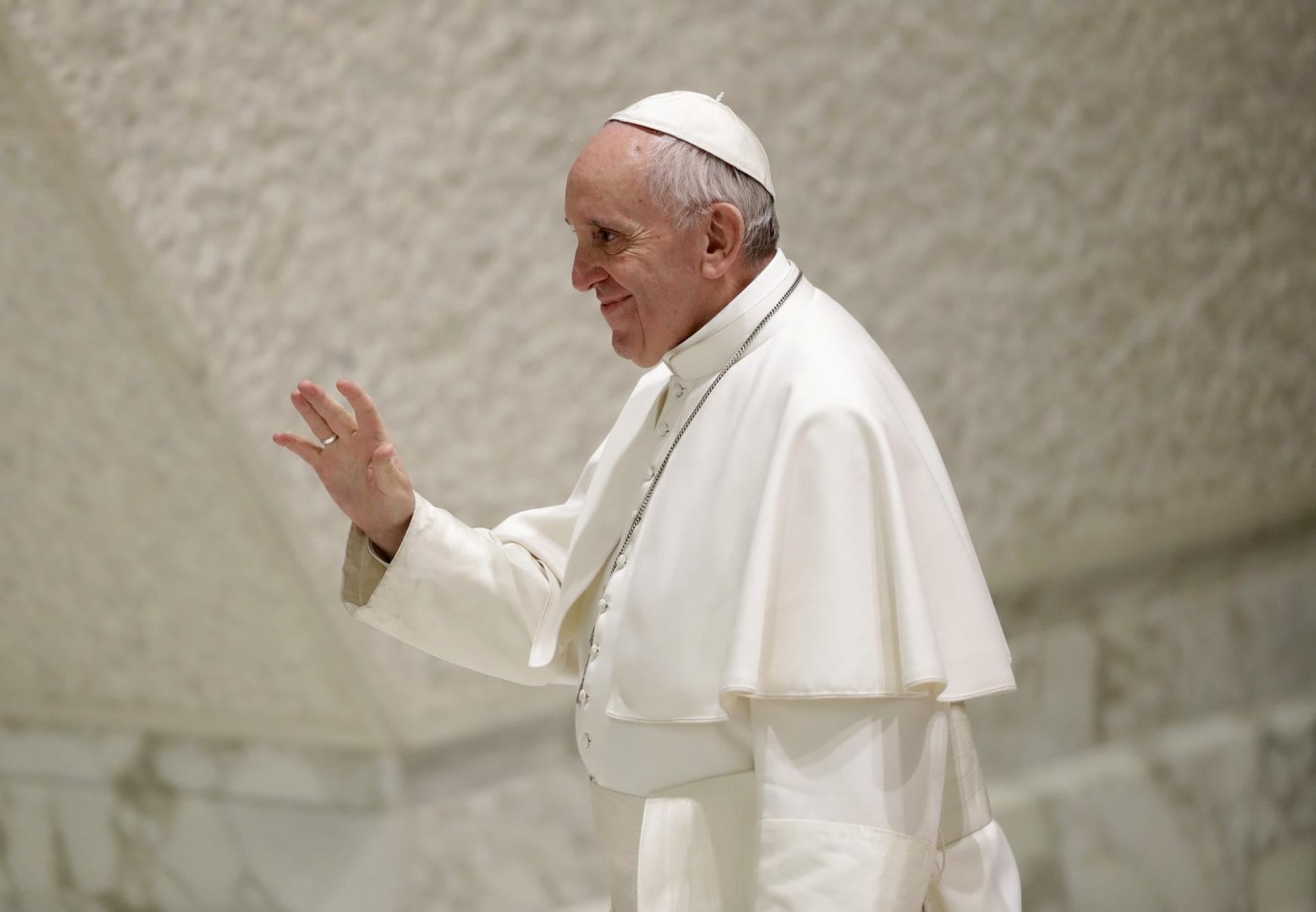ROME – Often described as a staunch critic of modern-day capitalism, Pope Francis was at it again on Saturday, going after airlines and gambling companies for “caring” for victims they themselves produce.
“Gambling companies finance campaigns to care for the pathological gamblers that they create,” Francis said. “And the day that the weapons industry finances hospitals to care for the children mutilated by their bombs, the system will have reached its pinnacle.”
The pope’s remarks came as he was addressing some 1200 representatives of Economy of Communion (EoC), an initiative of the Focolare, a lay movement emphasizing unity founded in the rubble of post-war Italy.
The EoC movement can be traced back to 1991, as an attempt to respond to the economic crisis in the favelas, or slums, that surround the Brazilian city of Sao Paulo.
At that time, Chiara Lubich, founder of the Focolare, invited the first group of entrepreneurs to set up businesses that followed market laws and produced profits “which would be freely put in common,” according to the movement’s website.
Communion and economy, Francis said on Saturday, “are two words that contemporary culture keeps separate and often considers opposite.” He praised those who practice EoC, saying that “spiritual communion of hearts is even fuller when it becomes the communion of goods, of talents, of profits.”
As he’s done before, the pontiff also went after money becoming an idol, which happens when it becomes the sole aim of one’s activities, but also acknowledged its importance, “especially when there is none and food, school, and the children’s future depend on it.”
If it wants to be faithful to its vision, Francis said, EoC can’t only care for the victims of the current economic system. Even though an entrepreneur who imitates “the Good Samaritan of the Gospel” is commendable and sometimes even requires the help of the market, “the innkeeper” in the biblical passage, this attitude is “not enough.”
“As long as the economy still produces one victim, and there is still a single discarded person, communion has not yet been realized; the celebration of universal fraternity is not full,” he told those gathered in the Paul VI Hall, an auditorium within Vatican grounds.
“Therefore, we must work toward changing the rules of the game of the socio-economic system.”
An entrepreneur who is only a Good Samaritan, Francis insisted, does only half of his duty, for he or she “takes care of today’s victims, but does not curtail those of tomorrow.”
He also lambasted those who evade taxes, saying the duty to pay one’s fair share “lies in solidarity.” According to Francis, even before being illegal, tax avoidance and evasion are acts which deny the basic law of life of “mutual care.”
Talking about capitalism, Francis decried that it “continues to produce discarded people whom it would then like to care for,” with for instance airlines contaminating the environment but using part of the revenue to plant trees.
He also said that when profit becomes the only purpose of capitalism, it can become a form of worship, with the “goddess of fortune” increasingly becoming “the new divinity” of a certain finance model. He cited the gambling industry, “which is destroying millions of the world’s families.”
Material goods, such as cars or phones become old and wear out, Francis said, “but if I have money or credit I can immediately buy others, deluding myself of conquering death.”
It’s facing this reality, the pope told the EoC group, that the ethical and spiritual value of choosing to “pool profits.” The best way to avoid making money an idol, he insisted, is to “share it with others, above all with the poor, or to enable young people to study and work, overcoming the idolatrous temptation with communion.”
By sharing their money with others, Francis said, they’re saying to money through deeds, “You are not God.”
The first gift of the entrepreneur, the pope said in his remarks, “is of his or her own person” because money, although important, “is too little.”
“Capitalism knows philanthropy, not communion,” he continued. “It is simple to give a part of the profits, without embracing and touching the people who receive those ‘crumbs’.”
Back in 2013, in his first major papal document, an apostolic exhortation called Evangelii Gaudium (The Joy of the Gospel), Francis denounced the prevailing economic system, which is one of exclusion, saying it “kills.”
Speaking to the Focolare on Saturday, he urged them to make their “no” to this economy that kills a “’yes’ to an economy that lets live, because it shares, includes the poor, uses profits to create communion.”
Urging the group to look ahead, Francis applauded them for proving in the past 25 years that communion and economy can exist and grow together, while at the same time asking them to “give it to everyone” making sure it doesn’t remain an in-house project.
Growth, the pontiff said, shouldn’t be based on quantity, because “too much salt makes the meal salty,” but in the quality of the Economy of Communion.
“Every time people, peoples and even the Church have thought of saving the world in numbers, they have produced power structures, forgetting the poor,” he said.
Saturday’s meeting between the pope and the 1100 people involved in the Economy of Communion came amidst a Feb. 1-5 workshop on this issue that is taking place in Castel Gandolfo, a town on the outskirts of Rome that not so long ago was the place where popes spent part of their summers.
According to a press release sent out by the Focolare, the majority of the participants are entrepreneurs who “chose communion as a way of life, personally and also in the running of their businesses.”
They came from 54 countries, including the United States, Mexico, China, Korea, Argentina, Nigeria, the Democratic Republic of Congo, Italy, Spain and Australia.














